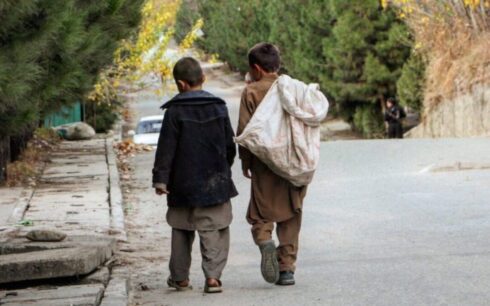Naseer Ahmad Faiq, the Charge d’Affaires of Afghanistan’s permanent mission to the United Nations, says the Taliban’s resistance to the appointment of a UN special envoy and the commencement of intra-Afghan dialogue could result in Afghanistan’s global isolation and further exacerbate the ongoing crisis in the country.
In an interview with Amu, Faiq emphasized that the evaluation of the United Nations special coordinator and its roadmap represents the only viable solution to Afghanistan’s political and humanitarian crisis.
According to Faiq, this roadmap serves as the groundwork for the establishment of a legitimate, responsible, and comprehensive government in Afghanistan. It also provides a platform for the country’s reintegration into the international community under specific conditions.
The appointment of the United Nations special envoy, the implementation of practical steps to devise a solution, and the execution of the future roadmap for Afghanistan are considered crucial steps following consultations among member nations in the UN Security Council regarding the UN’s new assessment.
“If this does not happen, we will witness the continuation of the current situation, with the humanitarian crisis persisting. Countries will be hesitant to initiate humanitarian aid, leading to a decrease in aid. The majority of Afghanistan’s people will suffer, and Afghanistan will remain internationally isolated,” Faiq warned.
The new assessment by the United Nations special coordinator, Feridun Sinirlioglu, with its recommendations, is viewed as the foundation for global interaction with Afghanistan, including the Taliban, to break the political deadlock, albeit under specific conditions.
Afghanistan’s UN mission head outlined requirements imposed on the Taliban for the country’s reintegration and structured interaction. These requirements include revoking restrictive decrees against women, engaging in dialogue with all parties, ensuring women’s participation in all structures, fulfilling Afghanistan’s global commitments, and taking other steps to resolve the trust crisis.
Faiq clarified, “The report is not for the recognition of the Taliban. It emphasizes that until they take steps to implement their obligations and rescind decisions and policies against human rights, even normalization of relations or Afghanistan’s integration at the international level will not be achieved.”
The new assessment has been presented to the United Nations Security Council, and discussions are expected to take place during the council’s meeting. The next steps, under the guidance of the UN Secretary-General, include appointing a special envoy, forming a contact group, and organizing meetings of special representatives to implement the roadmap.
Jawed Yarmal, a resident of Kabul, expressed hope, stating, “All parties should participate in negotiations, and people should get out of this misery. We are happy that Afghanistan has not been forgotten by the international community.”
Sana, another Kabul resident, highlighted the impact on women, saying, “The women who stayed away from education, all stayed at home, the women who stayed away from work, stayed at home. The meetings were held only for their own benefit. No action was taken against the women.”
The UN-mandated assessment also recommends the continuation of special envoy meetings hosted by the UN and the formation of an international contact group





